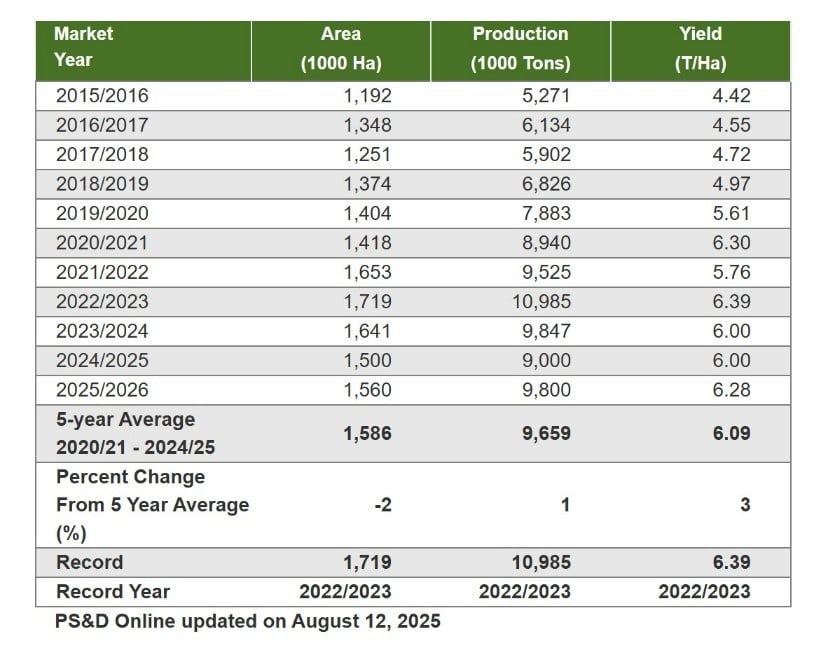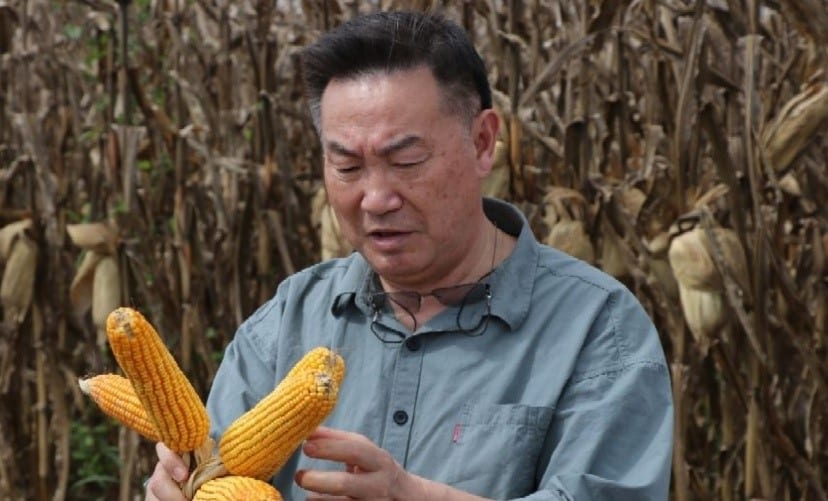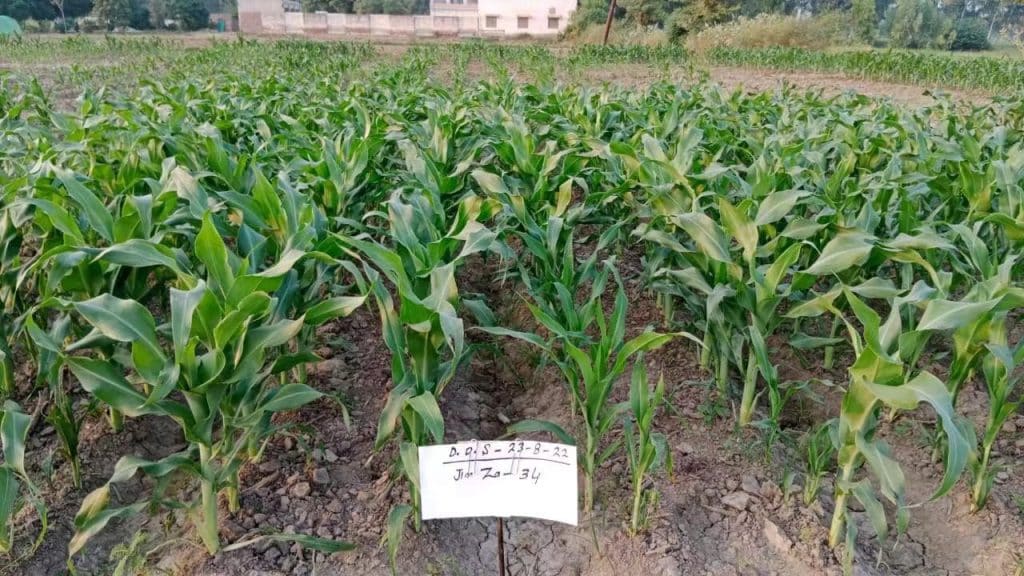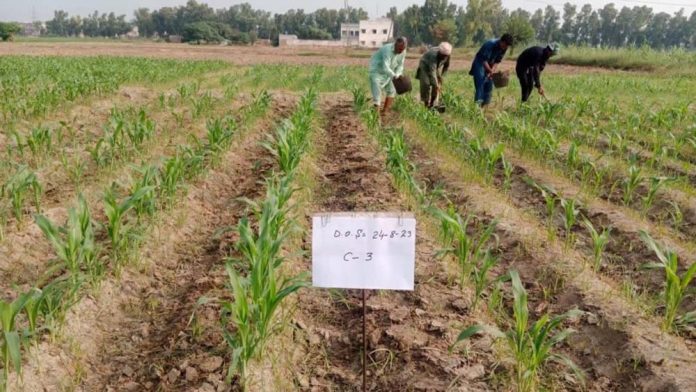“It’s no secret that the most pressing issue facing Pakistani agriculture today is water scarcity. So, how could we best adapt to local conditions, as well as turn this bottleneck, a national constraint, into an opportunity for development? Developing drought- and infertility-tolerant crops is imperative, and maize, as a global staple, is the perfect choice,” Professor Yuan Guobao, Chairman of the Hubei Technical Market Association, introduced just after the signing of the China-Pakistan Memorandum of Understanding on Cooperation in Maize Breeding and Industrialization Development on September 5.
The MoU was signed by Hubei University Modern Agricultural Innovation Research Institute, China, Hubei D-Gene Seed Incorporated Company, China, Patron Seeds (Pvt) Ltd, Multan and Department of Plant Breeding & Genetics, University of the Punjab, with focus on biotechnology breeding, seed production and processing, demonstration and promotion, and industrial development of maize.

Pakistan Corn Yield (T/ha)
According to official data, Pakistan’s average corn yield over the five years from 2020/21 to 2025/06 was around 6.09 tons per hectare. “As for China, our average maize yield is currently about 8-10 tons per hectare. If high-quality varieties are planted in areas with good fertility and water resources, the yield can reach as high as 12-15 tons per hectare. Therefore, there is huge potential for increasing maize production in Pakistan,” Yuan told.
Yuan, who has visited Pakistan more than 30 times and has a deep understanding of the local climate, soil and hydrological conditions, expressed that China, as a country with a large population and livestock industry, still needs to import 20-30 million tons of maize each year. Pakistan, with huge agricultural potential, can achieve a 30-50% increase in maize production by combining good varieties and good methods.

“To have a good harvest, you first need good land. Recent local research has revealed a large amount of saline-alkali land along the Indian Ocean coast. According to Pakistani data, the area is approximately 10 million hectares,” Yuan pointed out.
“Besides, some areas have formed secondary saline-alkali land due to improper fertilization. Therefore, we need first remediate saline-alkali land according to requirements. China has extensive experience in this area and is well-suited to comprehensive remediation using a combination of engineering and biological measures.”

Yuan then gave a detailed introduction to the varieties. The maize being promoted locally is primarily heat-resistant varieties. Considering Pakistan’s high temperatures (around 40 degrees Celsius, the growth limit for most crops), China has designed the most critical sowing and heading/grain-filling periods based on local climatic conditions. Furthermore, considering the varying climates of different regions across Pakistan, Chinese researchers plan to verify and select the most suitable varieties through actual planting.
“Only through local breeding can we find the most suitable varieties for the local area. In addition, we plan to cultivate local talents related to crop gene editing technology, which is also the top priority of this China-Pakistan cooperation plan.”
The reporter learned that related industrial upgrades have also been the subject of in-depth discussions between the two parties. Beyond the deep processing industry chain for maize itself as a food, more efficient straw utilization is going to further empower the livestock industry.
“Furthermore, to achieve true industrial upgrading, we must move beyond the existing traditional planting model. For example, we could customize a specialized fertilizer for each high-quality variety and apply it to the sowing process, essentially planting both seeds and fertilizer simultaneously. Regarding labor, the local area faces low labor efficiency due to extreme high temperatures. We could customize supporting agricultural machinery to enable farmers to complete agricultural work without enduring prolonged heat waves,” Yuan added.


